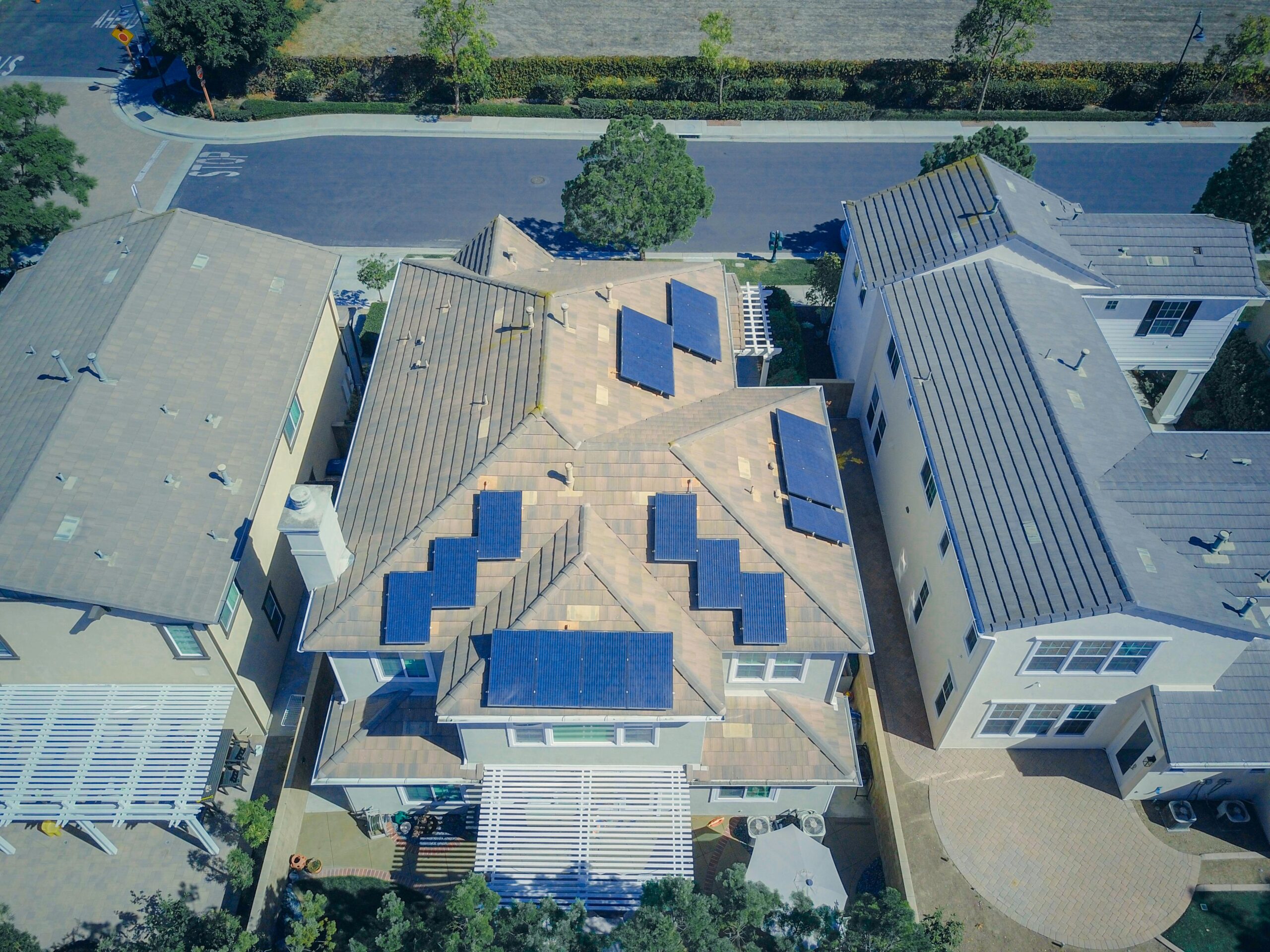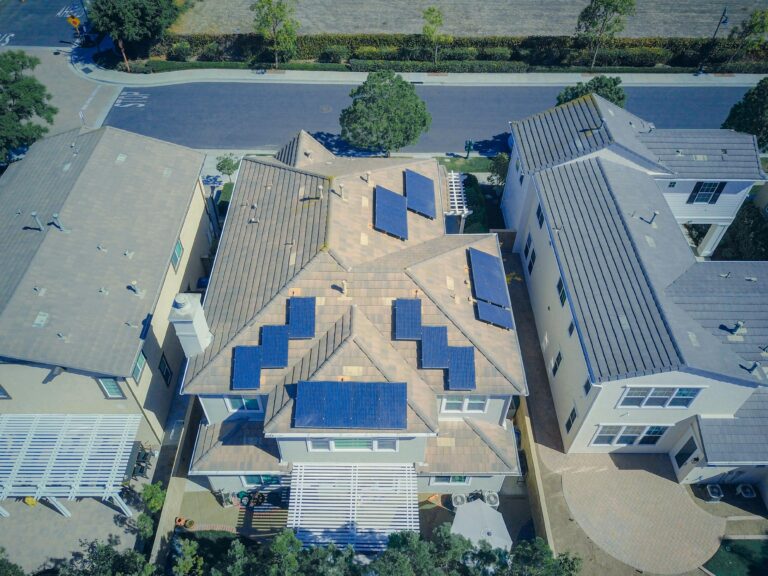
The intersection of sustainable energy and real estate has become a focal point for homeowners, buyers, and investors in the United States. Solar panels, once a niche investment, are now a mainstream feature that can significantly influence property values. Whether you’re a first-time homebuyer or a seasoned real estate investor, understanding how solar energy affects property worth is essential for making informed decisions.
The Growing Popularity of Solar Energy
Over the last decade, solar energy adoption in the U.S. has surged. Federal incentives, declining equipment costs, and heightened environmental awareness have all contributed to this trend. According to the Solar Energy Industries Association (SEIA), the U.S. has over 150 gigawatts of installed solar capacity, with millions of homes already equipped with photovoltaic (PV) panels.
For buyers and investors, this growth signals an opportunity to tap into properties that align with the rising demand for energy-efficient homes. But how exactly do solar panels impact property values?
How Solar Panels Add Value to Homes
Increased Resale Value
Multiple studies have demonstrated that solar panels can boost a home’s resale value. A 2019 Zillow analysis revealed that homes with solar panels sold for 4.1% more on average than comparable homes without them. This premium translates into thousands of dollars in additional equity, making solar installations a worthwhile consideration for those looking to maximize their property’s market potential.
Lower Utility Costs
One of the most immediate benefits of solar energy is the reduction in utility bills. For homebuyers, the prospect of saving hundreds of dollars annually on electricity can be a strong selling point. Long-term investors, especially those managing rental properties, also benefit as energy-efficient homes can command higher rents.
Eco-Friendly Appeal
Sustainability is no longer a buzzword—it’s a lifestyle. Many buyers prioritize eco-friendly features when choosing a home. Solar panels align with this ethos, appealing to environmentally conscious buyers who may be willing to pay a premium for green living.
Solar Panels and Market Perception
Regional Variations in Value
The impact of solar panels on property values can vary depending on the location. In sun-rich states like California, Arizona, and Florida, solar energy is a no-brainer for many homeowners. These states often see higher property value increases compared to areas with less sunlight or lower adoption rates.
For example, homes in California, where energy costs are among the highest in the nation, often see a significant value boost from solar installations. Conversely, in regions where electricity is cheaper and sunlight less abundant, the value proposition might be less pronounced.
Age of the Solar System
The condition and age of a solar system also affect its perceived value. Newer installations with long-lasting warranties are more attractive than older systems nearing the end of their lifespan. Buyers may view outdated panels as a liability due to potential replacement or maintenance costs.
Ownership Matters: Leased vs. Owned Systems
One critical factor is whether the solar panels are owned outright or leased. Owned systems are seen as an asset, directly adding to the home’s value. Leased systems, however, can complicate the sale process, as buyers may need to take over the lease agreement. This distinction is crucial for both sellers and buyers to understand when evaluating a property’s worth.
Key Considerations for Buyers and Investors
For First-Time Homebuyers
If you’re a first-time homebuyer considering a property with solar panels, start by asking these questions:
- Are the panels owned or leased?
- What is the age and efficiency of the system?
- How much energy savings can you expect?
Understanding these details will help you assess whether the added cost of a solar-equipped home aligns with your long-term financial goals.
For Real Estate Investors
Investors looking to acquire rental properties or flip homes should evaluate the local market demand for solar energy. Properties with solar panels can attract eco-conscious tenants or buyers, potentially leading to quicker sales and higher returns. However, it’s essential to account for maintenance costs and the system’s remaining lifespan when calculating ROI.
Financial Incentives for Solar Panel Adoption
Federal and state incentives can significantly offset the cost of installing solar panels, enhancing their appeal. The federal Solar Investment Tax Credit (ITC) currently allows homeowners to deduct 30% of the installation cost from their taxes. Additionally, many states offer rebates, tax exemptions, or performance-based incentives that make solar systems even more affordable.
Buyers and investors should investigate available incentives in their area to better understand the financial benefits of purchasing or installing solar panels on a property.
Potential Challenges to Keep in Mind
While solar panels offer many benefits, they’re not without challenges. Some common concerns include:
- Upfront Costs: Despite incentives, the initial installation cost can be high, ranging from $15,000 to $25,000 for an average residential system.
- Maintenance and Repairs: Solar panels require occasional maintenance to ensure optimal performance, which can be an additional expense.
- Aesthetic Preferences: Some buyers might not like the appearance of solar panels, potentially limiting the pool of interested buyers.
The Future of Solar Energy in Real Estate
The integration of solar technology into real estate is expected to grow, driven by advancements in panel efficiency, increased affordability, and a greater emphasis on sustainability. Emerging trends, such as solar roofing tiles and energy storage solutions, could further enhance the value proposition of solar-equipped properties.
For first-time buyers, solar panels represent an opportunity to embrace sustainable living while potentially saving money in the long run. For investors, they offer a way to differentiate properties and cater to a growing segment of eco-conscious consumers.
Solar panels are no longer just a “nice-to-have” feature—they’re becoming a must-have for many buyers and investors in the U.S. real estate market. By understanding their impact on property values, you can make smarter decisions whether you’re purchasing your first home, upgrading your current property, or expanding your investment portfolio.
As solar energy continues to gain momentum, properties equipped with this sustainable technology are well-positioned to stand out in an increasingly competitive market.





